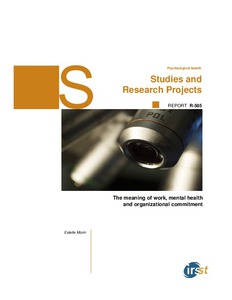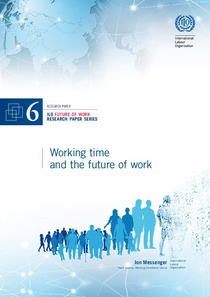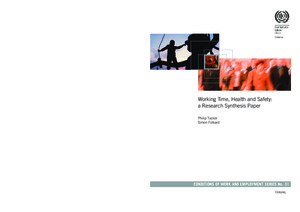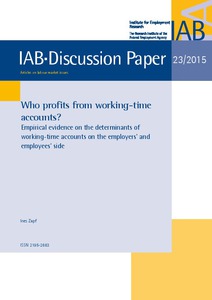Working-time mismatch and mental health
"Nationally representative panel survey data for Germany and Australia are used to investigate the impact of working-time mismatches (i.e., differences between actual and desired work hours) on mental health, as measured by the Mental Component Summary Score from the SF-12. Fixed effects and dy...
| Main Authors: | Otterbach, Steffen, Wooden, Mark, Fok, Yin King |
|---|---|
| Institution: | ETUI-European Trade Union Institute |
| Format: | TEXT |
| Language: | English |
| Published: |
Bonn
2016
IZA |
| Subjects: | |
| Online Access: | https://www.labourline.org/KENTIKA-19105142124919233249-Working-time-mismatch-and-ment.htm |
Similar Items
-
Mental health and productivity at work: does what you do matter?
by: Bubonya, Melisa, et al.
Published: (2016) -
Work hours constraints and health
by: Bell, David N.F., et al.
Published: (2011) -
Working time in Europe. The duration and flexibility of working time in 17 European countries from European Industrial Relations Review.
by: Carley, Mark
Published: (1991) -
New work organisation, working conditions and quality of work: towards the flexible firm?
Published: (2002) -
Time for change? Coming to terms with the EU working time Directive
by: Hall, Mark, et al.
Published: (1997)













